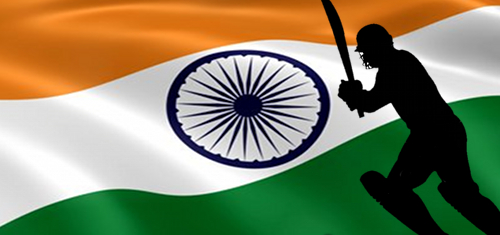 A Supreme Court-appointed panel has recommended that India authorize betting on cricket while making match- and spot-fixing a criminal offence.
A Supreme Court-appointed panel has recommended that India authorize betting on cricket while making match- and spot-fixing a criminal offence.
On Monday, a three-member committee headed by India’s former Chief Justice R.M. Lodha issued its report (read it here) following a year-long study of cricket and its governing body, the Board of Control for Cricket in India (BCCI). The study was prompted by the 2013 betting scandal that rocked the Indian cricket world.
The panel’s recommendations aren’t legally binding, but the report says betting “can be effectively dealt with by providing a legal framework” that would “serve both the game and the economy.” The panel strongly urged Indian legislators to formally authorize cricket betting and to license betting operators.
The panel said the government would need to appoint “regulatory watchdogs” to monitor betting activity, with “strict penal sanctions” imposed on any operator caught flouting the terms of their license. Individual bettors would also be subject to oversight and the panel recommended a complete ban on betting by anyone associated with cricket, including players, team and match officials, administrators, owners, etc.
The panel singles out match- and spot-fixing as “neither pardonable nor a matter for regulation. The only way to deal with it is by making it a criminal offence punishable by law.” The panel also recommended that players and administrators be required to disclose their incomes and assets to the BCCI to ensure any suspicious wealth increases don’t go unnoticed.
The panel found that the BCCI was “ill-prepared” to deal with incidents of match- and spot-fixing and recommended that a “dedicated special investigation wing in the police” be activated whenever such incidents are detected. The BCCI would be responsible for funding this wing.
The panel also made several recommendations regarding the BCCI’s organizational structure, including term limits for office-bearers and a ban on state officials holding BCCI posts.
A second report issued by the panel cleared Indian Premier League COO Sundar Raman of allegations regarding his involvement in the 2013 scandal. Raman was found to have failed to inform the authorities of illegal activities by team officials but the panel said it found no evidence that this omission was the result of any ulterior motive.
India has previously flirted with the idea of legalizing sports betting but legislative progress has to date been non-existent. The country’s gambling market is governed by the Public Gaming Act 1867, the modernization of which has long been the goal of think-tanks and gaming industry stakeholders.
